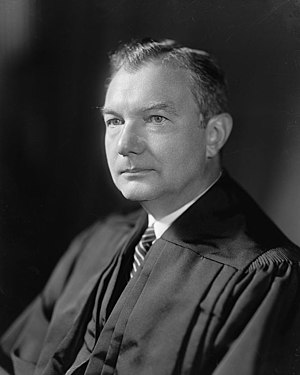
“It is not the function of our Government to keep the citizen from falling into error; it is the function of the citizen to keep the Government from falling into error.”
Share this quote:
“When the [Supreme] Court moved to Washington in 1800, it was provided with no books, which probably accounts for the high quality of early opinions.”
Share this quote:
“In our country are evangelists and zealots of many different political, economic and religious persuasions whose fanatical conviction is that all thought is divinely classified into two kinds-that which is their own and that which is false and dangerous.”
Share this quote:
“We can afford no liberties with liberty itself.”
Share this quote:
“The day that this country ceases to be free for irreligion, it will cease to be free for religion.”
Share this quote:
“We are not unaware that we are not final because we are infallible; we know that we are infallible only because we are final.”
Share this quote:
“In this court the parties changed positions as nimbly as if dancing a quadrille.”
Share this quote:
“Men are more often bribed by their loyalties and ambitions than by money.”
Share this quote:
“We must never forget that the record on which we judge these defendants today is the record on which history will judge us tomorrow.”
Share this quote:
“The price of freedom of religion, or of speech, or of the press, is that we must put up with a good deal of rubbish.”
Share this quote:
If there is any fixed star in our constitutional constellation, it is that no official, high or petty, can prescribe what shall be orthodox in politics, nationalism, religion, or other matters of opinion or force citizens to confess by word or act their faith the
Share this quote:
Struggles to coerce uniformity of sentiment in support of some end thought essential to their time and country have been waged by many good as well as by evil men. Nationalism is a relatively recent phenomenon but at other times and places the ends have been racial or territorial security, support of a dynasty or regime, and particular plans for saving souls. As first and moderate methods to attain unity have failed, those bent on its accomplishment must resort to an ever-increasing severity. . . . Those who begin coercive elimination of dissent soon find themselves exterminating dissenters. Compulsory unification of opinion achieves only the unanimity of the graveyard.It seems trite but necessary to say that the First Amendment to our Constitution was designed to avoid these ends by avoiding these beginnings. There is no mysticism in the American concept of the State or of the nature or origin of its authority. We set up government by consent of the governed, and the Bill of Rights denies those in power any legal opportunity to coerce that consent. Authority here is to be controlled by public opinion, not public opinion by authority.If there is any fixed star in our constitutional constellation, it is that no official, high or petty, can prescribe what shall be orthodox in politics, nationalism, religion, or other matters of opinion or force citizens to confess by word or act their faith therein.
Share this quote:
Men are more often bribed by their loyalties and ambitions than by money.
Share this quote: